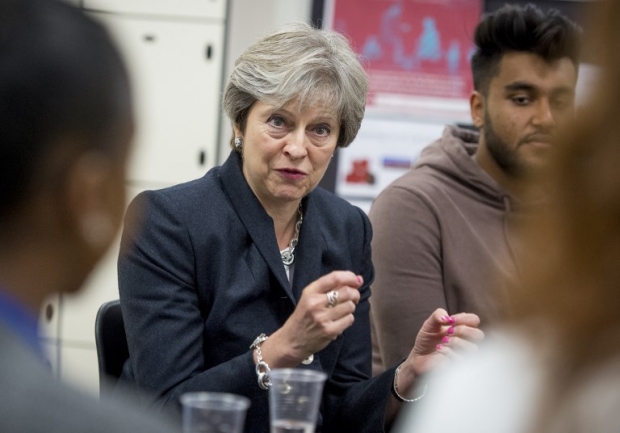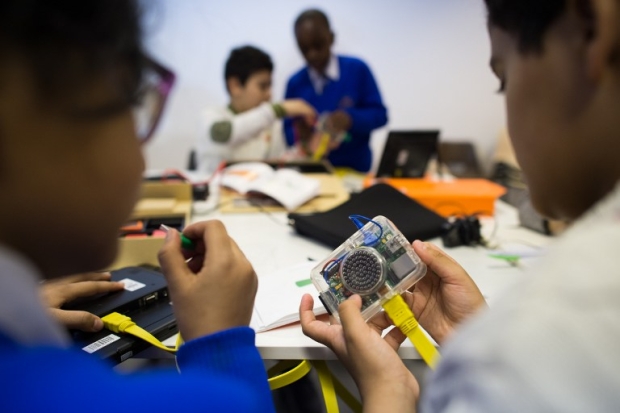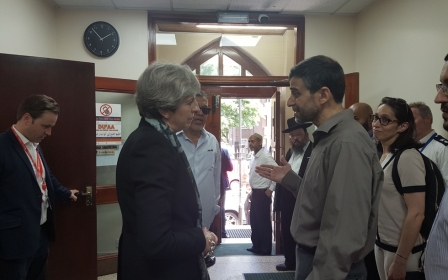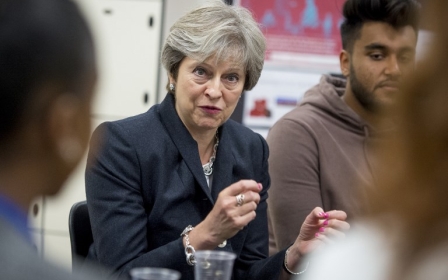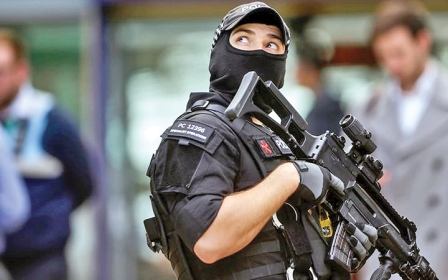What Prevent referral figures don’t say: The impact on Muslim young people
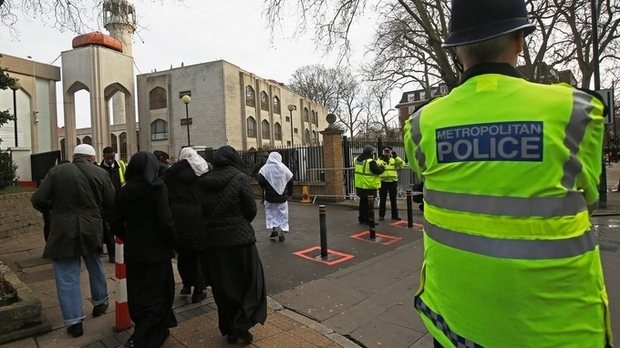
The British government on Thursday released a statistical bulletin which recorded the most recent numbers of individuals referred to and supported through the Prevent counter-terrorism programme.
Middle East Eye noted that more than 7,500 people were referred in 2015-16 over concerns that they were at risk of being drawn into terrorism, with almost two-thirds of referrals relating to alleged cases of "Islamist extremism".
There's a lot of referrals on to other services outside of a Channel context. This is what happens when austerity meets securitisation
Execessive scrutiny of Muslim children
These figures show an unfortunate culture of over-referral and excessive scrutiny of Muslim children (1,504 children under the age of 15) deemed at risk of being "radicalised" and drawn to terrorism.
Of the 7,631 people recorded, only 382 received specialist support - just 5 percent of the total. While 10 percent of referrals (751 people) related to far-right extremism, two thirds of cases (65 percent) involve Muslims.
While the release of these statistics is a step toward greater transparency, it continues to raise questions about the efficacy of the government's strategy for preventing terrorism.
Writer and researcher Yahya Birt told MEE: "There are problems with the way the data has been presented - particularly the age breakdowns of 15 and 20 which crucially don't correlate with standard age divisions between pre-school, primary, secondary and tertiary education.
Muslim young people who want to vent their frustrations should be engaged in critical debate and need to have a necessary safety valve to release grievance
"There is a lot of referrals on to other services outside of a Channel context ("Channel" provides support to those who may be vulnerable to being drawn into terrorism, according to a UK government website.) This is what happens when austerity meets securitisation.
"Proper research has to be done to see if cash-strapped public services are hoping to get priority by going through a cash-primed Prevent policy, thereby providing an economic incentive to securitise the relationship between the often young Muslim citizen and the British state on the basis of suspicion."
As MEE already noted, among all individuals who were assessed, 2,766 people left the process without requiring any further action. However, the human consequences from this raw data are not likely to be told.
Monitoring students
As far back as 2011, a report authored by Durham University researchers Tufyal Choudhury and Helen Fenwick found that the implementation of government counter-terrorism policies could breach human rights and equality laws and run the risk of undermining trust and confidence in the police and security services.
Educationalist Bill Bolloten has argued that schools and childcare settings attempting to safeguard children from harm have designated vulnerabilities, and warning signs of radicalisation are so broadly drawn that they have become almost meaningless.
London-based teacher Rob Faure Walker has documented numerous instances of Muslim children who were scared to practice their religion in case they were reported to Prevent and Walker has now launched a website to record testimonies of its counterproductive effects.
Another secondary school teacher has said that "since the heightened introduction of the Prevent strategy in schools, I have noticed a discernible hesitation among Muslim students to contribute fully in classroom discussions.
"I have lost count of the number of times I have witnessed the most boisterous of Muslim students suddenly shut down when we talk about an issue where their cultural or religious background might inform their opinion."
This extends to the realms of political dissent, as visible expressions of solidarity for pro-Palestinian viewpoints have resulted in teachers being encouraged to monitor students, and the campaigning group Prevent Watch has documented scores of other cases.
This negative impact on Muslim children and young people was even recognised by the former independent reviewer of terrorism legislation, David Anderson, who has stated in evidence given to a parliamentary home affairs committee that: "Stories alleging the insensitive and discriminatory application of the Prevent duty in schools have ... become a media staple."
Silencing dissent
This was reiterated at an international level by a UN evaluation into the implementation of the Prevent duty in schools, which led the Institute of Race Relations, drawing on the evaluation, to conclude that it "is undermining professional standards, educational independence, children's rights to freedom of thought, expression and association and principles of non-discrimination, and is alienating Muslim young people and communities".
The over-referral of Muslim young people is silencing dissent, stigmatising religious practice, eroding trust and has created a climate of fear that has adversely affected the education and damaged the emotional wellbeing of thousands of Muslim children across the UK.
It also has the unintended potential to force some to seek undesirable online and offline spaces where they can fully express themselves and actually exposes them to extremist messaging, which is likely to increase given the massive social media presence of these groups and as Islamophobia appears to be normalised in Britain.
The over-referral of Muslim young people is silencing dissent, stigmatising religious practice, eroding trust and has created a climate of fear
Those wanting to increase awareness of violent radicalisation in educational contexts would benefit from the work of people like Professor Lynn Davies at Birmingham University, an expert on education and extremism, who advocates giving "children a secure, but hybrid sense of identity, so that they are less likely to be drawn to 'membership' of single-identity, single-issue, ends-justify-the-means groups ... to give skills in critical appraisal, critical values and critical action".
Muslim young people who want to vent their frustrations should be engaged in critical debate and need to have a necessary safety valve to release grievance. Otherwise, problematic viewpoints cannot be challenged or appropriate mentoring provided.
- Dr Sadek Hamid is currently a senior researcher at the Oxford Centre for Islamic Studies at Oxford University. He has written widely about British Muslims, young people and religious identity formation and is author of Sufis, Salafis and Islamists: The Contested Ground of British Islamic Activism (I.B. Tauris, 2017) and was editor of Young British Muslims: Between Rhetoric and Realities (Routledge, 2016).
The views expressed in this article belong to the author and do not necessarily reflect the editorial policy of Middle East Eye.
Photo: The government's controversial counter-extremism strategy has been dismissed as 'no longer fit for purpose' (AFP)
Middle East Eye propose une couverture et une analyse indépendantes et incomparables du Moyen-Orient, de l’Afrique du Nord et d’autres régions du monde. Pour en savoir plus sur la reprise de ce contenu et les frais qui s’appliquent, veuillez remplir ce formulaire [en anglais]. Pour en savoir plus sur MEE, cliquez ici [en anglais].



